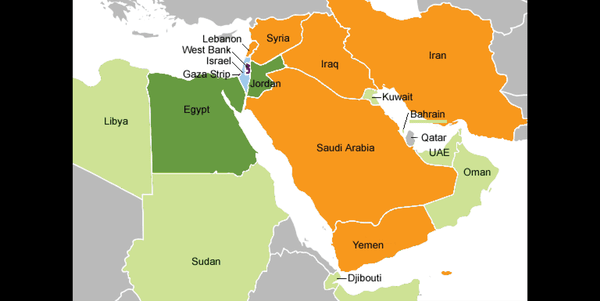From Kimberley Plan to Israel Prize
June 29, 2015Israel Prize laureate and celebrated painter Yosl Bergner celebrates 95, and last weekend he hosted a special meeting in his Tel Aviv studio with the President of the Zionist Federation of Australia Dr. Danny Lamm and Chaim Chesler, founder of Limmud FSU, an organization that aims to strengthen the Jewish identity and heritage in Jewish communities all around the world.
The reason for the special visit: announcing a new exhibition presenting some of Bergner’s best work that will be held at the upcoming Limmud FSU conference in Sydney, Australia.
Bergner’s father, the Yiddish poet Melech Ravitch, was the initiator of the legendary Kimberley Plan, whose purpose was the creation of the Jewish state in Australia. Despite gained momentum and even a broad support from Albert Einstein, as a result of the Holocaust and the establishment of the state of Israel the plan was eventually abandoned. And yet, Bergner’s family settled in 1930’s in Australia, before the Aliyah in the 1950s.
During the meeting, Bergner told the guests that not everything went smoothly in Australia after leaving Poland.
“They told me I was an intruder, a stranger,” he said. “The newspapers wrote about me as a Polish Jew who comes to Australia and dare to paint its landscapes, the Aborigines, and the shepherds.”
However, there were also some Australians who supported the idea of Jewish state in their country.
“One Irish born intellectual used to say to me again and again, ‘the Jews need a place where to put their weary heads,” Bergner recalled.
“I always knew that my father saved us,” he continued. “His hope to establish a Jewish state in Western Australia stemmed primarily because of the location: far away from civilization and anti-Semitic incidents, that gradually gained momentum – very similar to what is happening in Europe nowadays.”
Loading…
Similar posts
-

Israel Has The Most Moral Military In The World
April 10, 2024In the heart of a region often riddled with conflict, Israel stands out not only for its technologi...
-

The Resilience of the Israeli People
April 2, 2024Visitors from around the world have seen Hamas's October 7th Massacre's destruction in southern Isr...
-

Israel: Small Size, Big Impact
March 21, 2024Nestled along the eastern edge of the Mediterranean Sea, Israel is a land of immense historical sig...
-

Israelis Are Fighting For Their Lives
February 21, 2024By Jonathan S. Tobin The world looks a lot different from Kibbutz Kfar Aza than it does in the U...
-

Over 2 Million Arabs Live In Israel
January 23, 2024In the complex landscape of the Middle East, where diverse cultures and identities intersect, Israe...
-

'Fauda' Star Idan Amedi Injured Fighting in Gaza
January 8, 2024Despite the severity of his injuries, Amedi's father assured Israeli news channels that his life is...
-

Israel Is A Great Country To Live In
December 28, 2023Nestled at the crossroads of the Middle East, Israel stands as a vibrant and dynamic nation, offeri...
-

Women's Empowerment in Israel
December 15, 2023In recent decades, Israel has witnessed a remarkable evolution in the status and empowerment of wom...




















